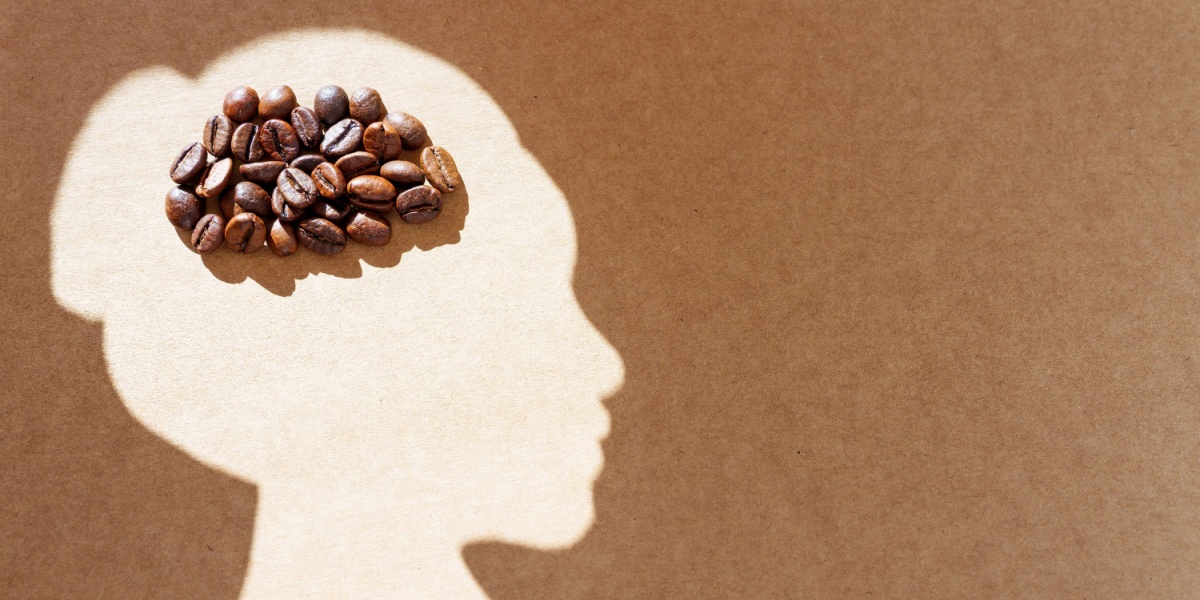Caffeine is one of the most widely used substances in the world. In the US, 80-90% of adults consume at least one cup of coffee a day. Consuming large amounts of caffeine can cause adverse effects on overall health, so, for some people, it might be beneficial to quit or cut down.
However, stopping caffeine consumption can cause withdrawal symptoms so it can be helpful to know how to manage this.[1][2]

What is caffeine withdrawal?
Caffeine is a substance found in several different types of food and drink, such as coffee and energy drinks. Consuming large amounts of caffeine for extended periods can result in the development of physical dependence, causing the body to require continued use to prevent the onset of withdrawal symptoms.[1][3]
Withdrawal symptoms occur when caffeine consumption is reduced or stopped, particularly if this occurs abruptly. The occurrence and severity of withdrawal symptoms can vary from person to person and may be more severe for those who regularly consume large amounts of caffeine.[3][4]
Caffeine withdrawal timeline
Symptoms are likely to start within 12-24 hours of the last caffeine dose, often feeling the most severe after 1-2 days and lasting up to around nine days.[3]
Common symptoms of caffeine withdrawal
Caffeine withdrawal symptoms can vary from person to person and on the severity of caffeine dependence. Some common symptoms to look out for include:
Headaches
Caffeine affects adenosine receptors, which have several roles in the body, including the regulation of vein and artery function and the release of neurotransmitters. The impact of caffeine on these receptors can help prevent headaches, so when caffeine intake is reduced or stopped, rebound headaches can occur, which may be linked to increased blood flow.[5][6]
Around half of people who stop consuming caffeine will experience headaches. This can occur even after small amounts of daily consumption.[3]
Reduced energy
The effect of caffeine on adenosine receptors also impacts energy levels, with caffeine contributing to increased alertness and wakefulness. As such, when caffeine is reduced or stopped, energy levels can drop significantly, causing individuals to feel very sleepy and low in energy.[5][7]
Reduced cognitive abilities
Studies have found that caffeine withdrawal can contribute to a significant decrease in cognitive performance, including poor concentration, delayed reaction, and foggy brain. This can occur even after one missed cup of coffee in regular coffee drinkers, which can contribute to habitual consumption.[7]
Mood changes
Caffeine withdrawal can have several effects on mood and behavior, such as feeling irritable, depressed, anxious, and stressed. This may also be linked to the effect of caffeine on adenosine receptors. Its effects can impact neurotransmitter release, including dopamine and serotonin, which can affect mood and other mental health symptoms.[5][7]
Cardiac effects
Caffeine withdrawal can include effects on the heart such as increased or decreased blood pressure and significant increases in heart rate. Caffeine also impacts the regulation of norepinephrine release, which can cause effects similar to those of the ‘fight or flight response’, such as increased heart rate, shaking, and hot flashes.[1][5]
Abdominal and gastrointestinal effects
Many people experience effects such as nausea, vomiting, constipation, or stomach pain while going through caffeine withdrawal. This can often be mistaken for stomach flu or upset due to other causes.[1]
The benefits of removing caffeine from your system
Giving up caffeine can contribute to significant changes in physical and mental well-being, such as:
Reduced anxiety
Caffeine can worsen symptoms of anxiety, so reducing or stopping caffeine intake can have a positive effect, particularly for those who struggle with anxiety disorders and stress.[8]
Reduced headaches
Headaches are likely to occur during caffeine withdrawal but after withdrawal symptoms have alleviated, they will be much less likely to occur. Many people who often consume caffeine experience withdrawal headaches regularly, as withdrawal symptoms can occur before the first coffee or caffeinated item of the day or when a usual coffee time is missed.[4][6]
As such, stopping caffeine consumption altogether can help prevent headaches.
Better tooth health
Research on coffee and tea consumption and tooth health produces varied results. Some studies suggest that antioxidants in these beverages may benefit tooth strength. However, caffeinated drinks, particularly black coffee and black tea, are likely to stain teeth. The acidity of coffee and the sugar content of various caffeinated drinks may contribute to decay.[9][10]
Reducing caffeine intake may help reduce the risk of staining and decay, leading to whiter and healthier teeth.
Improved sleep
Although caffeine is often used to increase energy and alertness, prolonged consumption can negatively impact sleep. Research suggests that regular caffeine consumption can cause less total time asleep, reduced sleep quality, and more daytime sleepiness. As such, stopping the consumption of caffeine can help improve sleep quality and quantity.[11]
Reduced bowel movement problems
In some cases, caffeine can contribute to positive impacts on digestive health. However, for some people, it can worsen digestive issues, such as irritable bowel syndrome (IBS), due to laxative effects. Stopping the consumption of caffeine can help prevent these effects and improve bowel and digestive health.[12]
Tips to get through caffeine withdrawal
Coping with caffeine withdrawal can be challenging for some, so the following tips may be helpful:[2][3]
- Slowly reduce: Gradually decreasing your caffeine intake, rather than abruptly stopping, can help prevent or reduce withdrawal symptoms.
- Hydrate: Ensuring you drink plenty of water and remain hydrated can help reduce the effect of caffeine withdrawal symptoms, such as headaches and nausea.
- Alternative hot drinks: If you are used to having a cup of coffee first thing in the morning, try replacing this with a different hot drink, such as Rooibos tea, to help manage cravings without consuming caffeine.
- Alternative energy boosters: Various foods, drinks, and supplements can replace the energy boost that coffee provides. Ginseng tea, vitamin supplements, and apples are good examples of energy-boosting items.
- Pain relief: If you experience a lot of headaches or other pains during caffeine withdrawal, you may find pain-relieving medications helpful as a short-term treatment.
- Rest: Caffeine withdrawal may cause you to feel tired and fatigued, so getting plenty of rest and good quality sleep can help manage these symptoms.
- Increase fiber: Eating plenty of high-fiber foods can help maintain healthy bowel movements and prevent constipation.




-guide-detail.jpg?v=1722502337)